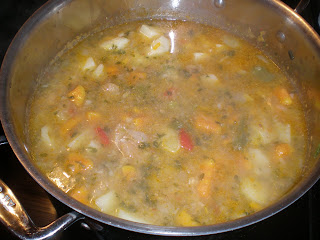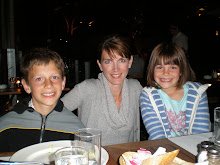



If you’re looking for a unique, less-touristy destination that hasn’t been fully exploited you may want to consider Cape Verde. The island country, composed of ten islands and eight islets, is located in the Atlantic Ocean off the West Coast of Africa. Despite its proximity to the mainland it has its own distinct culture with Portuguese-speaking, hip swaying music lovers who dance to tunes ranging from the samba to the salsa. The island’s famous singer, Cesaria Evoria – the “barefooted diva” – sings morna, a type of folk music similar to Portuguese fado.
Cape Verde has a wide variety of landscapes ranging from white-sand beaches to volcanic mountain ranges. Here, you’ll experience beautiful scenery, friendly people and a handful of island-y things to do such as hiking, water skiing, snorkeling, fishing and scuba diving. Each of Cape Verde’s islands offer something unique and I imagine it would be fun to island hop. For instance, you could go to Fogo and check out the volcano that erupted in 1995 or you could go to Santiago, the first island settled in Cape Verde and where the capital Praia is located.
The islands were uninhabited until the Portuguese discovered and colonized them in the 15th century. In the 16th century it prospered from the transatlantic slave trade and later it became an ideal location for re-supplying ships. In 1975 it gained independence from Portugal but the country has struggled with isolation and cyclical drought insulting in famine. It now has a fairly stable political and economic system and in 2007, Cape Verde went from being classified as Least Developed Country to being promoted to Developing Country.
Cape Verdean cuisine is a mixture of African and Portuguese traditions with Brazilian influences. Fish is very popular. Meat, fresh vegetables and fruit are also a part of the cuisine. Many of the dishes include potatoes and rice and a variety of beans. The national dish is Cachupa, a stew made with beans, corn, potatoes and fish or chicken. For our Cape Verdean meal we had Calco de Peixe, a fish soup featuring white and sweet potatoes and various vegetables. It was very good, despite the fact it had no spices. I also made Pudim de Queijo, a cheese pudding made from eggs and goat cheese. It looked beautiful but none of us cared for it.
Cape Verde has been added to my bucket list (I’m creating quite a long list with this project). I doubt I’ll get to go in the next year, or two, or three and I hope that when I do finally get there it’s not over-run by tourists. Then again, tourism will help this country – Europeans do vacation there. So what are you waiting for? Go now.
Caldo de Peixe
6 white potatoes, peeled and cubed
3 sweet potatoes, peeled and cubed
1 bunch fresh parsley
1 red bell pepper
1 green bell pepper
3 medium onions
2 tomatoes
4 green onions
1.5kg fresh saltwater fish (though I used 4 tilapia fillets and cut them up in cubes)
oil for frying
Gently fry the onions, tomatoes, green onions and peppers in oil. Cut the fish into small pieces and fry for a few minutes cover with water and bring to a boil. Add the potatoes and parsley then cover and reduce to a simmer. Cook until the potatoes are soft.
Pudim de Queijo
450g soft goat cheese
450g sugar
2 cups water
12 egg yolks
4 egg whites
Boil the sugar in water until it forms a thick syrup. Add the cheese and mix thoroughly (it may be easier to add the cheese in small parts instead of all at once). Now remove the mixture from the heat and combine with the beaten egg and yolks and egg whites.
Sprinkle the bottom of an over-proof dish with burnt sugar. Pour the cheese mixture into a double broiler and stir until custard thickens. Then pour into the over-proof dish. Bake at 350 degrees for 20 minutes, or until top browns. Allow to cool. Cut into slices and serve topped with granulated sugar.

No comments:
Post a Comment